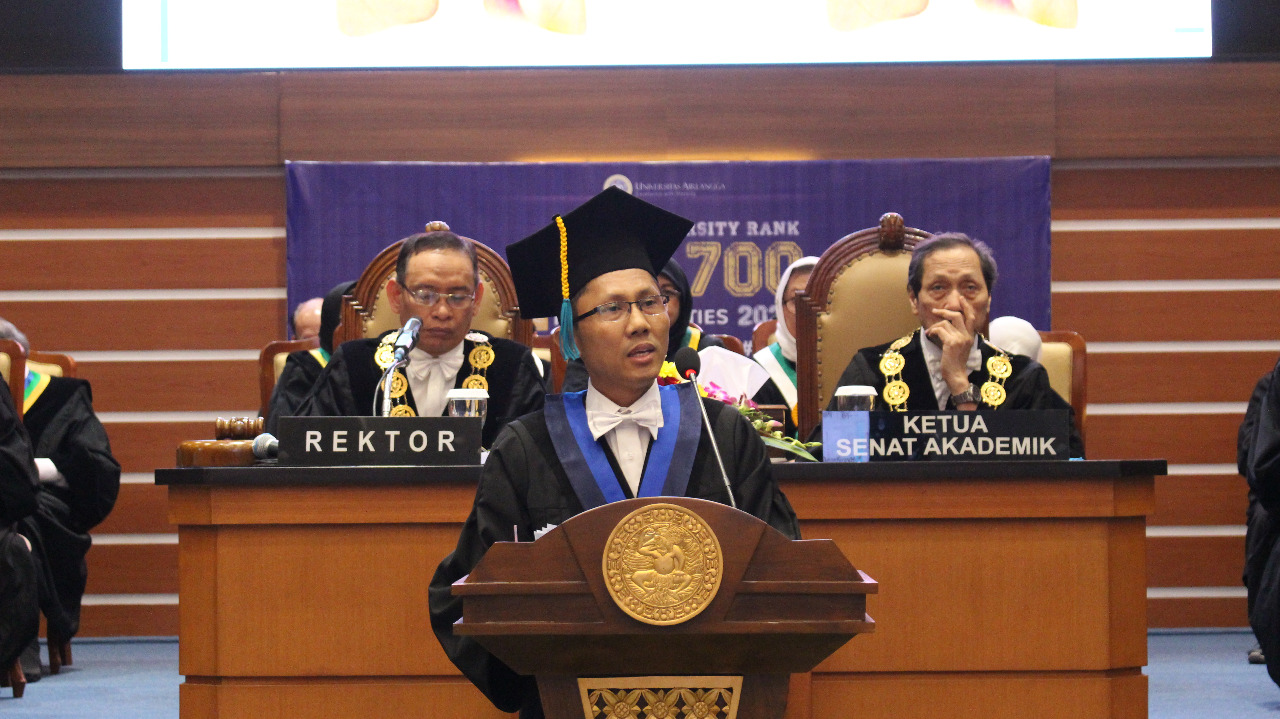UNAIR NEWS – Tuberculosis (TB) is a contagious infectious disease in humans caused by Mycobacterium tuberculosis. All organs, especially macrophage cells in the lungs, can contract TB germs through the air inhaled by the body. This disease is dangerous when dormant TB cells are activated due to decreased host immunity.
Every year, TB cases in almost all countries cause the death of 1.3 million of the world’s population. About 95% of world TB cases and 98% of deaths occur in developing countries. Indonesia is the second country with the most sufferers in the world after India and followed by China, the Philippines, and Pakistan.
This fact is supported by a report from the Ministry of Health of the Republic of Indonesia in 2017, which stated that the death of TB sufferers reached 120 thousand people. Furthermore, TB is the 4th leading cause of death in Indonesia after cardiovascular disease, stroke, and diabetes for infectious diseases.
Prof. Dr. Purkan made the statements, M.Si., when he was inaugurated as a professor at Universitas Airlangga on Thursday, September 12 in Garuda Mukti Hall, UNAIR Management Office. According to the 10th active professor of Faculty of Science and Technology (FST) UNAIR, TB has become a latent problem that has not been completely resolved until now.
“The elimination of TB has become one of the priorities in the three main government programs for the health sector. Therefore, it is necessary to involve all parties in various efforts, including the development of medicine as well as improving the quality of vaccines for therapy and preventive measures for TB prevention, “explained the man born in Sidoarjo.
He elaborated that the treatment of TB is done by giving first and second line TB drugs to kill germs. A combination of several drugs is given to anticipate when TB agents are resistant. It can occur when there has been an error in drug administration and the patient is not compliant in taking the drug.
“Speaking of the development of drugs and the tuberculosis vaccine, I remembered Surah Al-Hajj verse 73 and a hadith about a fly. From a scientific point of view, the explanation of this hadith gives the meaning that in the agent disease from fly, God has provided medicine, antidote, “said the Head of Chemistry Department, FST UNAIR.
The illustration of the fly disease agent in the hadith inspired Prof. Purkan to develop a TB treatment. He explored the M. tuberculosis cell parts to be developed into drug compounds and vaccines. This development was carried out with the help of in silico (biocomputing) tools because it was very effective.
“Although the biocomputation method is now very sophisticated, but the technique is a tool that presents the possibility and suggestions for drug candidates. “The realization of new drug postulates needs to be tested significantly in the laboratory, both in vitro and in vivo using biological cells or clinical trials to humans,” explained Prof. Purkan.
However, the direct use of attenuated M. tuberculosis as a vaccine is not without risk. Given the nature of high pathogenicity, it needs to be avoided from the possibility of germ reactivation. After going through the search and research stages, Prof. Purkan found a protein vaccine through cloning and expression of KatG gene from the clinical isolate L19. He and his team then tested the immunogenicity of KatG in experimental animals.
“The selection of KatG for vaccines is motivated by a number of research reports which show that KatG as a type of intracellular pathogenic protein. The results of the in vivo test showed that these findings were able to cause a significant immune response in mice and it is possible to be made into a protein vaccine. However, cross-vaccine testing and clinical trials are needed to carry out further verification of these findings, “he said.
The existence of this new discovery would be encouraging news because it can accelerate efforts to solve TB problems, especially in developing countries. Moreover, Prof. Purkan also encouraged UNAIR community to play an active role in ending prolonged TB cases through various research activities. (*)
Author: Nabila Amelia
Editor : Binti Q. Masruroh





